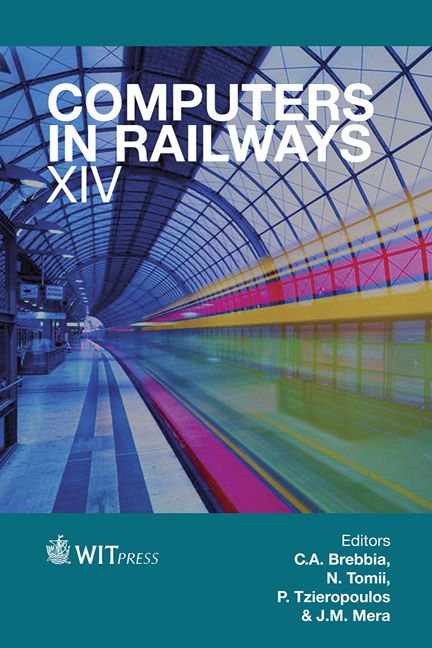Impacts Of Energy Saving Strategies (ESSs) On Rail Services And Related Effects On Travel Demand
Price
Free (open access)
Transaction
Volume
135
Pages
12
Page Range
709 - 720
Published
2014
Size
521 kb
Paper DOI
10.2495/CR140591
Copyright
WIT Press
Author(s)
G. Corapi, V. de Martinis, A. Placido & G. de Luca
Abstract
In railway systems, the evaluation of specific operating conditions and their impact on travel demand plays a key role both in planning and managing rail services. In this paper, we focus on the implementation of some energy saving strategies (ESSs) through the definition of energy-efficient speed profiles and estimate their effects on travel demand. In particular, speed profiles for ESSs need extra time for their implementation and hence entail a reduction in line performance. The definition of optimal speed profiles requires the use of optimisation procedures which can be formulated by considering motion parameters as control variables and energy consumption as the performance to be optimised (minimised), with respect to the available time. The proposed methodology is applied in the case of a real metro line, showing differences in user generalised costs, in order to provide additional information for rail operators which may allow evaluation of the best strategies to be adopted. Keywords: energy saving strategies, user generalised costs, rail passenger systems, public transport management.
Keywords
energy saving strategies, user generalised costs, rail passenger systems, public transport management.





